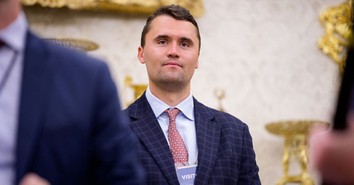How Can Christians Fight for International Human Rights?

“Just how should I feel about the movie Hotel Rwanda?”
This is the question I asked myself as I left the theater a few weeks ago and has asked myself many times since. What should be my reaction be to a poignant movie about one of the most despicable human rights violations of modern times? Horror, that such a thing could take place in this enlightened age? Despair, that the most powerful nations of the world did nothing to stop the atrocities? Triumphant, that despite the danger of being surrounded by such evil intent, one man stood up for what is right? Perhaps all of the above.
Helping Oppressed Neighbors
If nothing else, the movie is certainly a roller coaster ride for the emotions. Set in Spring of 1994, in the now infamous African nation Rwanda, Hotel Rwanda tells the story of Paul Rusesabagina (played by Don Cheadle), a hotel manager who lived in the capital city of Kigali. While Rusesabagina is a Hutu, his wife Tatiana (play by Sophie Okonedo) is a Tutsi, and the two ethic groups have been fighting each other for power for years.
When the Hutu President is assassinated and Tutsis are blamed, civil war breaks out, and Hutu extremists begin systematically rounding up and murdering their Tutsi neighbors. In 100 days time, approximately 850,000 were slaughtered, most of whom were not soldiers, but innocent men, women and children.
Compounding the tragic genocide was the fact that most of the world ignored the situation. Writing recently in the Washington Post “Book World” section, former Ambassador to the United Nations and U.S. Secretary of State Madeleine Albright wrote that her, “deepest regret, during [her] years in government was that the United States did not do more, earlier to halt the genocide that engulfed Rwanda 11 years ago…” (Albright was writing a review of Shake Hands with the Devil, an account of the genocide written by Lt. General Romeo Dallaire, the French Canadian who served as the UN mission commander during the tragedy.)
From an artistic perceptive, the movie is one of last year’s best. And riveting performances by the lead characters were nominated for best actor and actress in a leading role. Cheadle portrays Rusesabagina in a sympathetic manner as he navigates the chaos around him. We watch as Rusesabagina first tries only to save his family, and then reluctantly begins helping friends, neighbors, orphans and eventually anyone who shows up at his hotel. We empathize with him as he struggles to do the right thing in complex situations. In the end, Rusesabagina ends up saving 1,200 people.
Weighed in the Scales and Found Wanting
Despite being an excellent movie on an important topic, Hotel Rwanda (available on DVD April 12) didn’t get as much attention as it should have, even with several weeks of Oscar buzz for the main characters.
In a recent issue of Leadership magazine, author and pastor Brian McLaren lamented the fact that Mel Gibson’s The Passion of the Christ captured amazing amounts of attention from Christians; yet the same was not true of Hotel Rwanda. “If we really had the mind of Christ, this is the movie we would be urging people in our churches to see,” McLaren said.
Hotel Rwanda seemed to me an even more Christian film than The Passion of the Christ… it evoked in me a wave of compassion for my neighbors around the world, whatever their color or tribe, whatever their religion or politics. And I hear our Lord saying, “As you have done to the least of these… you have done to me.”
McLaren muses about the practical outcomes of millions of people watching Gibson’s film, and wonders what outcomes might occur if equal numbers saw Hotel Rwanda. He goes on to say there must be a wave of repentance for the “bad thinking that numbs us and steels us, blinds us and distracts us from the suffering of our neighbors.”
Although not explicitly Christian in its presentation, Rusesabagina’s story is not unlike the story Christ told of the Good Samaritan. It too asks the question, “who is my neighbor?” As another writer put it the Hotel Rwanda has much to teach us about “suffering, redemption and transformation.”
So perhaps “guilty” is how the film makers and others think I should feel. Guilty that I ignored the atrocities when they took place. Guilty that Christians, by and large, ignored the retelling of the story ten years later.
Christian Concern on the Rise
Each of us individually must decide what we need to repent of. Not all of those who read this are disinterested in or ignorant of Rwanda and other human rights issues around the globe. That such a film was made and made well, is a triumph.
Low interest in Hotel Rwanda notwithstanding, there is evidence on the rise that American Christians are becoming more and more concerned with what goes on outside the borders of the United States.
In his recent book Freeing God’s Children: The Unlikely Alliance for Global Human Rights, Allen Hertzke chronicles the growing interest in human rights that Christians have displayed in the last 10 to 15 years. This interest has led to a variety of public policy measures passed. It has led to higher awareness on a number of human rights issues.
The first legislation passed, supported by an unlikely coalition of conservatives and liberals, Christians and secularists, was the International Religious Freedom Act of 1998. The following years saw new bills passed on Sudan, North Korea, sex trafficking and prison rape. More awareness has been raised about the persecution of other believers around the world.
Historically, human right has been a left-wing concern. Now politically conservative evangelicals are finding themselves building coalitions with liberal Jews, Catholics and feminists. Even Madeleine Albright recognized in her Post article that there is reason to hope incidents such as the Rwanda genocide will become less frequent. Christians are asserting their influence on politicians.
[M]ore and more conservative American politicians are joining liberal internationalists in asserting a moral duty to lead on global issues. This creates an opportunity for all parts of the U.S. political spectrum to come together. If the American right, left and center can agree to work with international partners to prevent future genocides, that alone would carry us farther than we have ever been.
Believers know the origins of “moral duty.” They realize that mankind, created in God’s image, contains a certain dignity. That basic dignity deserves our respect, and when it is in danger of being violated, our protection. As Christ noted, when we show love and kindness to the downtrodden, we show it to Him.
This is not to say that issues involving international relations with other cultures and governments are not complex. Such issues warrant careful investigation before action and Christians should not be prone to snap, ill-informed judgments. Nevertheless where evil is evident, we should be ready to stand for justice.
Using Our Energy Productively
There was no justice for the 850,000 Tutsi Rwandans slaughtered in 1994. It was a great tragedy that the genocide was not prevented and so little was done by the nations of the world to help these people. Yet wasting time with excessive guilt is ultimately unproductive. Let’s learn from the mistakes of the past to shape a better future. Christians should familiarize themselves with these difficult issues from around the world. They should advocate for those under persecution who have no one to speak for them.
In his book, Hertzke quotes Michael Horowitz, who although he is Jewish, has become a staunch advocate for persecuted Christians around the world. Horowitz uses his own experiences being persecuted for his faith to prod evangelicals to act on behalf of their own. When he tells people childhood stories about being bullied and mocked as a Jew by Christian children, people apologize to him. His response? Christians should stop apologizing for the sins of their fathers and start championing the causes of their brothers and sisters around the world.
And that seems like a good way to feel about Hotel Rwanda, and other human rights tragedies around that world. Conscientious Americans will always have a prick in their soul on the subject of Rwanda. As Christians, it is that pang of horror that gives us the motivation to do the right thing when future opportunities to stand for justice present themselves.
Taking Action: What Can You Do?
So, besides sending money or calling Congress, what can the average person to do to help the downtrodden and oppressed peoples in foreign lands? In his book Ambassadors of Hope, Robert Seiple, former president of World Vision and U.S. State Department Ambassador-at-Large for International Religious Freedom, offers a few ideas.
Understand your faith and others. Continue to study the Word of God and understand the message of Holy Scriptures and how they apply to your everyday life. But also learn about the perspectives of believers around the world and the worldviews of the other major faiths. The more we know about other cultures and beliefs, the better equipped we will be to meet their needs, both physical and spiritual.
Be better educated about our world. It is important for Christians to know what goes on in the world, even beyond what happens in our own country. America wields awesome power in the world today. American citizens most be well informed as to how that power is used. We cannot be ignorant.
Employ a methodology that enhances the message. For Christians, reconciliation is the methodology that must be stressed. As Christ’s death on the cross reconciled us to the Father, so we must demonstrate reconciliation in our everyday lives. “What was has been done to us,” says Seiple, “must be done by us.” Before nations and peoples can be at peace with one another, individuals must lead the way. “Reconciliation can turn nations back to God as well as make God-fearing societies attractive to the rest of the world.”
Stephen McGarvey is the editor of interactive media for BreakPoint with Chuck Colson and the Wilberforce Forum. He is also a Fellow of the World Journalism Institute and a freelance writer.
Originally published April 11, 2005.







